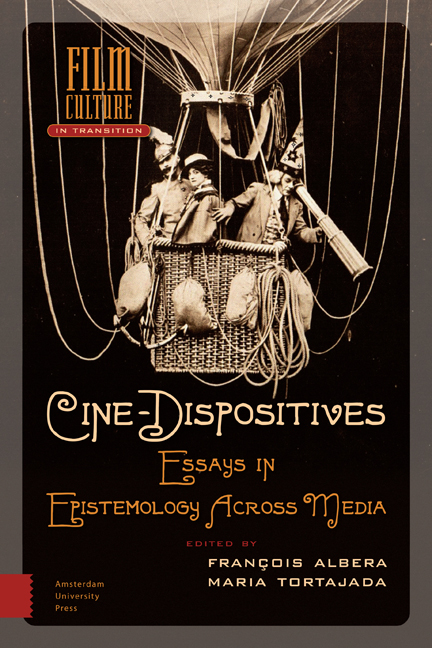The Dispositive Does Not Exist!
Published online by Cambridge University Press: 10 February 2021
Summary
Five ways to approach the dispositive emerge from the texts that appear in this volume; none is exclusive of the others, some are conjoined or articulated, some are separate. In French, the term “dispositif” refers to a plurality of meanings, from the simple mechanism of a device, instrument or machine, to the epistemological construction liable to produce effects of power and knowledge – the disciplinary dispositif or the dispositif of sexuality. From its most concrete to its most abstract definition, the “dispositif” involves the common signification of arrangement. Still, the different meanings of the notion subject it – and its users – to a considerable conceptual stretch, between empiricism and epistemology. We thus propose to examine these meanings so as to explain our own “programmatic” proposition, which is epistemological in nature.
Five Definitions of the Notion of “Dispositif”
The most common definition refers to “the way in which the organs of a device are placed” (circa 1860), soon supplemented by another meaning, that of sets of mechanical elements combined with a view to an effect, a result (Littré, 1874). Until then, the word had only assumed its (original) meaning in the judicial domain (as the part of a legislative text that settles a type of case imperatively); and, more recently, in the field of military science (as a set of measures, of means organized towards a strategic end).
As it appeared in the technical field, the word thus pointed to a degree of complexity, the relation of elements constitutive of a device, assembled and arranged, and the pursuit of an effect. Within this usual definition, a “dispositif” differs from a tool (pliers, be they universal), an instrument (the dentist's drill), a machine (a band saw) or even an appliance (the telephone), in spite of the fact that it tends to substitute metonymically for this latter object. Indeed, all of these examples are given “in one piece,” as a whole, in a linear relation to their user (as an extension of the hand) or, in the case of complex machines (even more so nowadays with computers), as what Bruno Latour calls “black boxes.”
- Type
- Chapter
- Information
- Cine-DispositivesEssays in Epistemology Across Media, pp. 21 - 44Publisher: Amsterdam University PressPrint publication year: 2015
- 4
- Cited by

